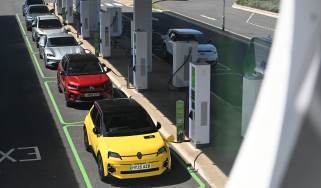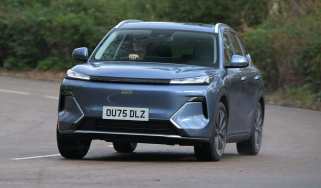Low Traffic Neighbourhoods: many residents unaware of multi-million pound ‘cash cows’
58 per cent of residents don’t know they’re in an LTN, while less than a quarter say they improve air quality or encourage cycling

Local councils are being urged to seek the “understanding and support” of residents when implementing Low Traffic Neighbourhoods, as government data shows that 58 per cent of residents are unaware of local schemes which have raised as much as £1.9 million each.
First introduced in March 2020, the official government description of a Low Traffic Neighbourhoods is: “An area-wide traffic management scheme aimed at reducing or removing through traffic from residential areas, put in place using traffic signed restrictions or physical measures such as planters or bollards.”
A recent survey by the Department for Transport asked 130 local authorities to provide data, with 42 respondents identifying a total of 99 LTNs across their joint jurisdiction, 18 of which have been subsequently removed following objections from locals.
Out of all the reasons given for implementing LTN schemes, the most common provided for the DfT’s survey was that of boosting active travel (walking, running, cycling etc.), followed by reducing local air pollution and the risk of accidents. However, the real-world impact of LTNs is unclear, with only 22 per cent of respondents reporting a perceived increase in air quality, and only a quarter (24 per cent) claiming that it encouraged them to travel by bike or foot.
The research also highlighted the fact that more than half of residents are typically unaware a local Low Traffic Neighbourhood exists, while 41 per cent claim LTNs have resulted in increased congestion on nearby roads. Only 45 per cent of locals are said to be in favour of their LTN schemes, the data shows, highlighting their often controversial nature.
Average of 36,000 Penalty Charge Notices per LTN
According to the DfT data, the implementation of an LTN will cost the taxpayer an average of almost £260,000. Unless you’re a taxi or a motorcycle rider, driving into affected areas without a permit will incur a fine, with the average LTN netting as many as 36,000 Penalty Charge Notices (PCNs) over the past four years.
The standard fine for driving into an LTN illegally is £130, although this is halved to £65 if paid within the first 14 days of issue. With this in mind, the average Low Traffic Neighbourhood could have collected as much as £1.9 million over the past four years, or roughly £480,000 per year.
The official figures reflect the fact that an average of 2,750 PCNs per LTN are challenged and overturned, and the upfront cost of implementing a scheme. They don’t however account for those that forget to pay before the end of the initial two-week ‘grace period’; if everyone paid the full £130 charge, the total raked-in could be as much as £4.1 million per LTN.
New guidance for councils
The mixed responses to Low Traffic Neighbourhoods have prompted the government to launch new guidance for local councils seeking to implement them. These involve getting community support by engaging in leaflet drops, running online surveys and holding in-person meetings where the public can raise any questions or concerns.
Speaking to Sky News, Transport Secretary, Mark Harper alluded to many councils using LTNs to “raise money”, but says councils risk losing further funding if they fail to adhere to the new statutory guidelines. Harper continued, saying: “We want local people to have their voices heard, and any traffic schemes to have the consent of those they impact.”
Labour has since blasted the government’s latest rhetoric as a “a blatant and desperate attempt to distract people from a Government that has run out of road”.
What's your opinion on LTNs? Tell us in the comments section below...









